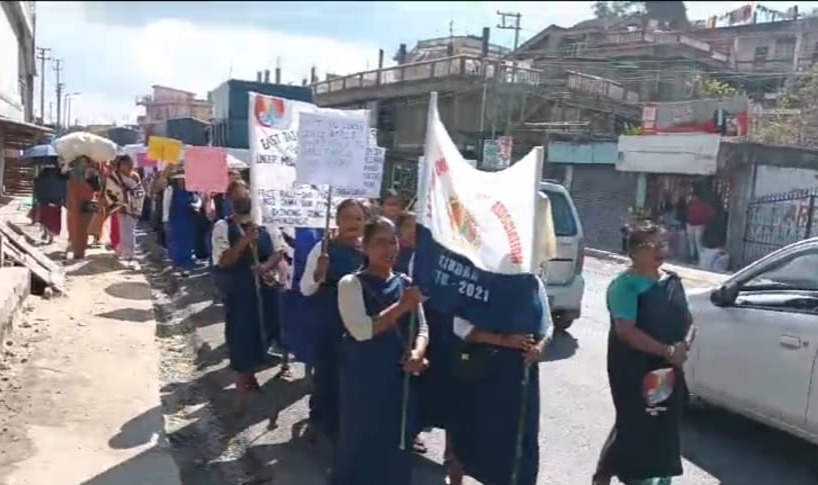Shillong, Nov 16: With the Accredited Social Health Activist (ASHA) workers of Meghalaya embarking on an indefinite strike, the government has been appealing to the volunteer community health workers to resume their duties as they are essential to the health and well-being of the community, especially in rural areas.
As both the sides remain at logger heads, it has become imperative to understand the roles and responsibilities of the ASHA workers to also understand their demand and if the honorarium of Rs 2000 they receive is really sufficient to cover their needs.
Who are ASHAs?
ASHA- Accredited Social Health Activist are community health workers in India, primarily women, who are trained to act as a bridge between the community and the healthcare system. They play a crucial role in the implementation of various public health programs and are a key component of the National Health Mission in India.
Accredited Social Health Activists (ASHA) are community health workers who play a crucial role in the implementation of the National Rural Health Mission (NRHM), now under the National Health Mission (NHM). ASHA workers are local women who are trained to act as health educators and promoters in their communities.
The main aim of the ASHA program is to strengthen primary healthcare at the community level and reduce health disparities in rural areas. The government’s mandate to have at least one ASHA worker for every 1000 people emphasises the importance of their role in reaching remote and undeserved populations.

Roles and Responsibilities of ASHA Workers:
1. Health Education:
ASHA is one of the key component of the national health mission who responsible for creating awareness on health
-Nutrition
-Hygienic practices and basic sanitation
– Working condition and healthy living
-Provide information on health services
2. Counsel women on Maternal and Child Health:
-Birth preparedness
-Importance about safe delivery
-Teach and inform about breastfeeding and complementary feeding
-Immunisation
-Prevention of common infection like -RTIS and STIS
3. Mobilize the community and facilitate them in accessing health and health related services.
-Immunization
-Ante Natal Checkup (ANC)
-Post Natal Checkup (PNC)
-ICDSGv
-Sanitation and other services being provided by the Government
4. ASHA workers also provide primary medical care for minor ailments such as
-Diarrhea
-Fever
-First aid for minor injuries
5. She is also a provider of Directory of Observed Treatment Short course (DOTS) under Revised National Tuberculosis Control Programme
Record Keeping:
ASHA workers also maintain records of health-related information in their communities. This includes keeping track of pregnancies, immunizations, and other health indicators.
7. Data Collection and Reporting:
ASHA workers collect and report essential health data to higher levels of the healthcare system. This information helps in planning and implementing effective public health programs.
Read: ASHA strike: A look at Meghalaya’s spending on the community health ‘volunteers’
WATCH:
Find latest news from every corner of Northeast India at hubnetwork.in, your online source for breaking news, video coverage.
Also, Follow us on-
Twitter-twitter.com/nemediahub
Youtube channel- www.youtube.com/@NortheastMediaHub2020
Instagram- www.instagram.com/nemediahub





